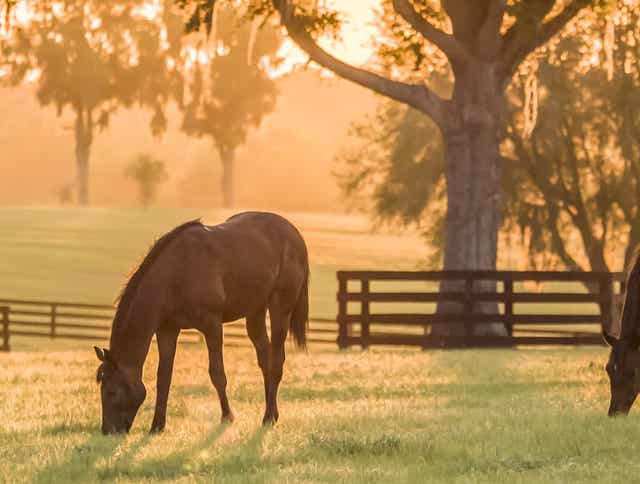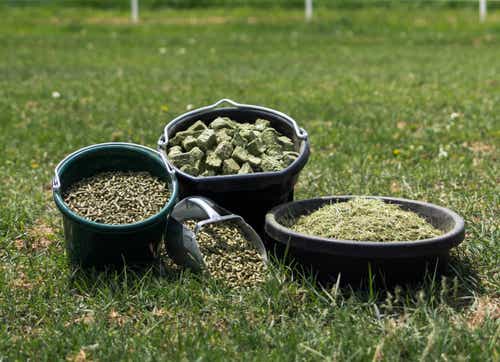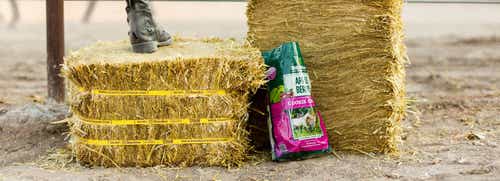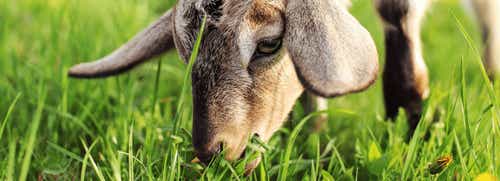
Transitioning from Summer to Fall - What Should I Consider with Impaction Colic in Horses?
Fall is approaching and with it, cooler weather and a shift in pasture availability and moisture content. When temperatures start to decrease, some horses have a tendency to drink less; coupled with eating less moisture dense pasture and more dry hay, this transition can sometimes bring on impaction colic. Diagnosed early, impaction colic usually can be treated and resolved without surgery.
Causes:
Impaction colic is a drying out of intestinal contents causing a blockage in the horse’s gut. The large intestine twists and turns and has several changes of direction and diameter. These “corners” can be position for impactions, where a firm mass of feed or foreign material blocks the intestine. Impactions can be induced by coarse feed stuff, dehydration or accumulation of foreign material, like sand. Other management changes such as feed changes or decreases in exercise and water intake and long-term use of NSAIDs can also increase the risk for impactions colic.
Signs:
The usual signs of approaching impaction colic are depression, decreased appetite, and decreased production and dryness of manure. If you notice these symptoms, you should contact a veterinarian. Diagnosed early, impaction colic usually can be treated and resolved without surgery. There are several ways horse owners can reduce the risk of impaction colic.
- It is important to evaluate the quality of hay being fed to horses. Often, first cutting local hay is baled at a more mature stage, with decreased nutrient content and increased total fiber. Fiber is necessary for the large intestine to function properly, but if there is too much non-digestible fiber, it can lead to an impaction.
- The amount of water consumed is a significant factor in preventing impactions. If the food material is too dry as it moves through the digestive system, it is more likely to cause a blockage. When weather changes, this can lead to a change in moisture intake as pasture is approximately 80% moisture and hay is between 10-15% moisture. When horses transition from grazing pasture to consuming more hay, it is important to make sure they are consuming adequate water.
- Non-exercising horses should consume a minimum of 10 to 12 gallons of water per day. An average adult horse produces about 10 gallons of saliva a day to help soften and lubricate food. If water consumption drops, then saliva production decreases. Continuous stall confinement can also contribute to the incidence of impactions.
- Proper dental care is also important in reducing the incidence of impactions. When forages are not chewed properly, it is more likely to move slower and possibly result in a digestive tract blockage.
- Parasite control is also necessary for the health and normal activity of the intestinal tract. A heavy parasite burden can irritate the intestinal tract, causing an intestinal blockage.
Management:
Some best management practices that can help avoid impaction colic include:
- Wetting feed or adding soaked forage sources, such as forage pellets, cubes or beet pulp.
- Adding an electrolyte to increase water intake and make sure horses have adequate exercise.
- Always feed a high-quality, digestible forage that is free from contaminants to ensure your horses’ health.
Standlee Premium Western Forage® offers several options from forage pellets or cubes that can be soaked to aid in the hydration of horses when temperature changes occur, to chopped forage products, compressed bales and Grab & Go® bales that can improve the overall quality of the forage provided to your horses.
If you have questions, please contact the nutritionist at Standlee Premium Western Forage, or consult with your veterinarian.
By Dr. Tania Cubitt
Performance Horse Nutrition
Scientific References:
1. Plummer AE. Impactions of the small and large intestines. Vet Clin North Am Equine Pract. 2009;25(2):317-327.








